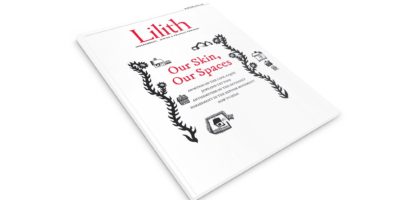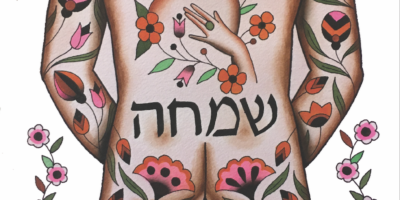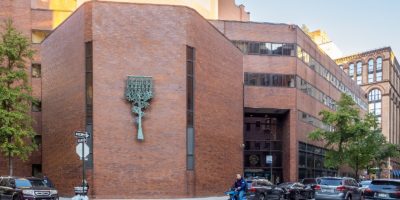A Murder Mystery Explores the Choice to be Childfree
In the opening pages of The Others [Mulholland Books, $28.00], by Sarah Blau, we encounter a murder, a phone call, and a woman without a husband and children. Sheila, Blau’s childfree (not childless) narrator, might be the last person to have seen Dina—her former best friend, a brilliant academic, also childfree—before she was brutally murdered.
It would not be a stretch to say that literature about Israeli (or Jewish) child- free women is rare at best. Women who by choice opt out of motherhood remain largely invisible, and if they are present at all, they’re scorned. Blau’s creepy (Dina is found with her hands taped to a baby doll), layered, and relentless novel not only confronts these taboos, it’s also crash course in the complexities of friend- ship, and feminist ideals, over time.
With a quartet of childfree women (who, in college, referred to themselves as “The Others”) at the heart of its mystery, confrontations with sexist stereo- types abound. The characters orbiting these women accuse them of being selfish, shallow, of leading meaningless lives, of being abnormal. Women with children are wary or self-righteous around them, and men display open disgust. And of course, there’s the call to procreate for the sake of the country, to outbreed “the Arabs and the Haredim.” It’s not “just” for the country, says a man castigating Sheila at a party, but for herself: ‘It’ll be good for you to think about someone other than yourself for once.”
While the novel is a swift read, economical in its language and powered by revelation and surprise, there’s much depth to excavate: Shelia’s religious child- hood and her complicated relationship with Bnei Brak, the neighborhood where she grew up, her attraction to younger men, and what brought “The Others” together in the first place—their desire not to be like everyone else, to thwart the marriage and motherhood path. One of many things that broke them apart was an argument over whether the women in the Torah who didn’t have children (i.e.Miriam and Michal) actually opted out, or at least wished they had.
The Others has all the elements of a good murder mystery; as more and more is revealed and we find ourselves changing what we think we know, we’re flipping pages to find out who did it. And yet if you removed the murders, you’d still have a story that resonates and disturbs. “I don’t know how a coward like you had the courage not to become a mother,” says a pivotal character to Sheila at the end of the novel. Maybe it isn’t about courage, muses Sheila to herself, maybe it’s about fear. And if it is? It’s her fear, hers to decide how to manage, whether or not to confront it, and what it means to live with it.
Chanel Dubofsky lives in Brooklyn, New York. She is at work on a novel about American Jews in Israel and Palestine in the aftermath of the 1967 war.




